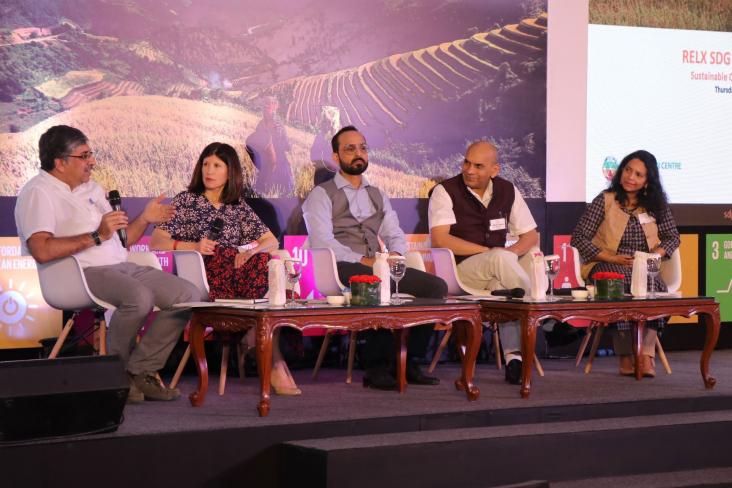Linking to SDGs 6 (clean water and sanitation), 12 (responsible consumption and production) and 17 (partnerships for the goals), this website catalogues and facilitates water stewardship projects in river basins and regions around the world.
The purpose of this study was to examine how innovative SDP organizations’ interactions with external stakeholders influence the social innovation process.
The number of countries with a national development plan has more than doubled, from about 62 in 2006 to 134 in 2018.

This article selection displays a sample of research that Elsevier publishes in its microbiology and medical journals, highlighting Elsevier's contribution to the efforts of battling the huge problem of antimicrobial resistance (AMR). Research within this selection supports SDGs 3 (good health and well-being), 6 (clean water and sanitation), 12 (responsible production and consumption) and 17 (partnerships for the goals).
The Sendai Framework for Disaster Risk Reduction encourages investment in innovation and technology development in disaster risk management.
The SDG National Reporting Initiative was launched to facilitate greater information-sharing on SDG reporting between international, regional, and local communities, furthering SDGs 16 and 17. This report summarises the state of SDG reporting as well as challenges and successes identified during the implementation of the SDG National Reporting Initiative.
The UN has adopted the Sendai Framework for Disaster Risk Reduction (2015–2030; SFDRR) in March 2015 and the member countries agreed to shift from disaster management to disaster risk management.
The “build back better” (BBB) approach to disaster recovery was first introduced in 2006 by the United Nations Secretary-General's Special Envoy for Tsunami Recovery, former US President William Cl
In May 2019, GIZ partnered with the Global Partnership for Sustainable Development Data and the Governments of Kenya and Ghana to organize a joint peer learning workshop for partners engaged in SDG implementation and monitoring from both countries. The aim of the workshop was to share and learn from each others experiences in the area of SDG monitoring and engage in a technical cross-country exchange, furthering SDG 17.

RELX held its fourth SDG Inspiration Day in Delhi to catalyse action on the UN Sustainable Development Goals. This event took place at the iconic Imperial Hotel in partnership with Global Compact India, Responsible Media Forum and the Ban Ki-Moon Centre for Global Citizens. The theme Sustainable Cities: SDG 11, critical to the rest inspired rich discussion among participants from business, government, civil society and academia who explored the interconnection of SDG 11 with cross-cutting themes, such as health and the rule of law.
